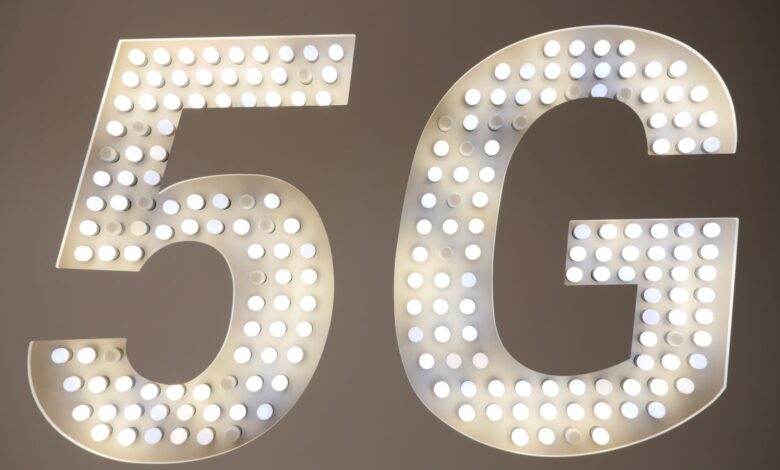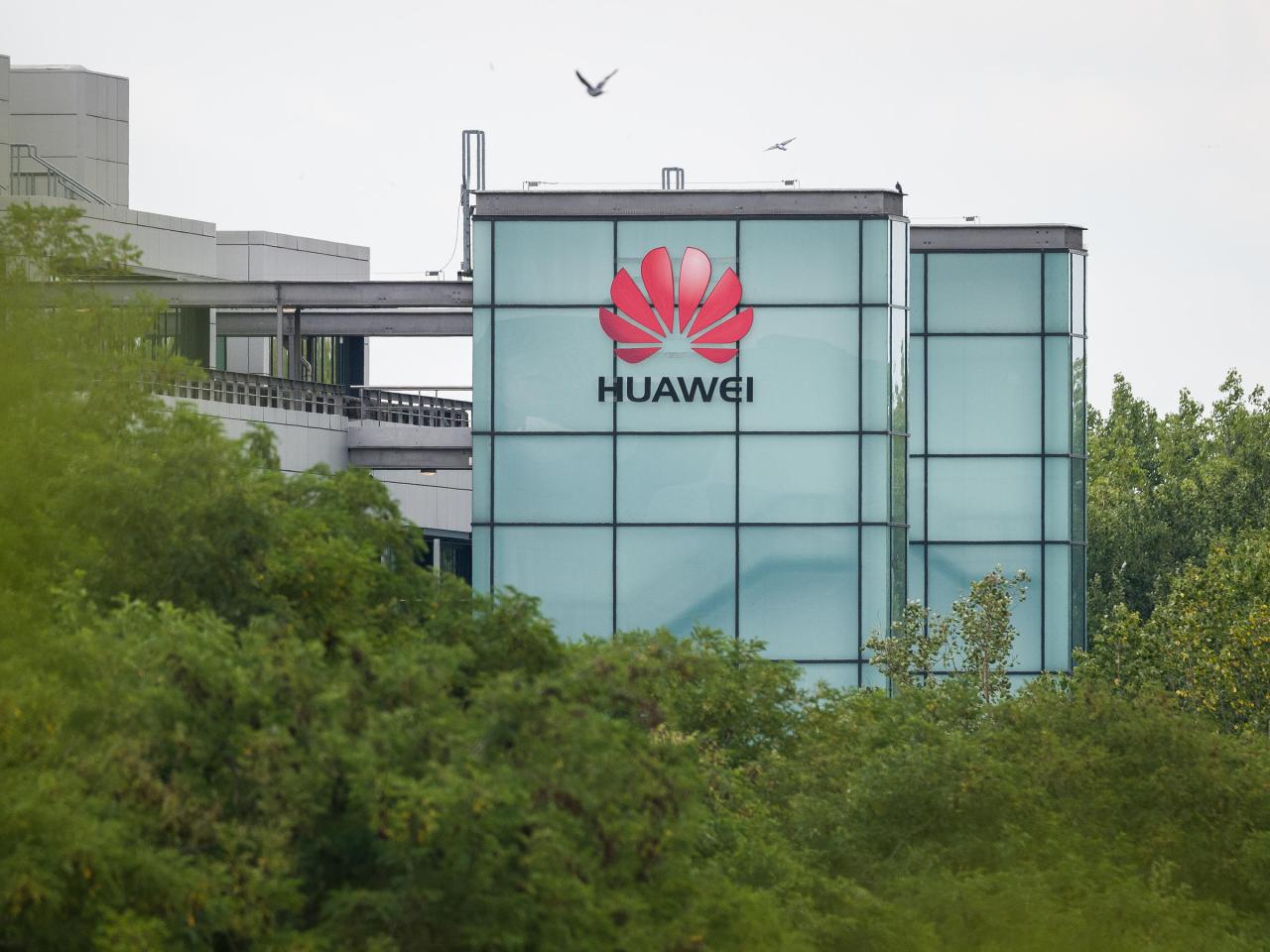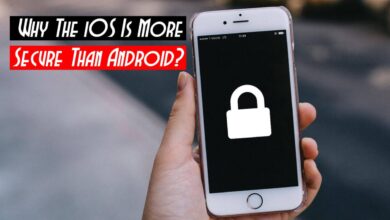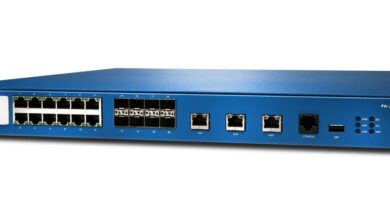
France Discourages Huawei 5G Network Equipment
France discourages usage of Huawei 5G network equipment, a move driven by significant national security concerns. The French government’s apprehension stems from potential vulnerabilities within Huawei’s technology, raising fears of espionage and sabotage. This decision has far-reaching implications, impacting not only France’s relationship with China but also the broader global technological landscape and the future of 5G infrastructure development.
The economic repercussions for both Huawei and French telecom companies are substantial, prompting a careful examination of alternative vendors and a strategic transition plan.
This complex situation involves navigating a delicate balance between national security, economic interests, and international relations. The debate highlights the growing importance of technological sovereignty and the need for robust cybersecurity measures in the face of rapidly evolving technological advancements. France’s actions are setting a precedent for other nations grappling with similar dilemmas, shaping the future of 5G deployment worldwide.
France’s National Security Concerns Regarding Huawei 5G

France’s decision to limit the use of Huawei 5G equipment stems from deep-seated national security concerns. These anxieties aren’t simply about technological capabilities; they’re about the potential for espionage, sabotage, and the erosion of France’s digital sovereignty. The perceived risks are significant enough to warrant a cautious approach, despite the economic implications.
Specific National Security Risks Perceived by France
France, like many other Western nations, fears that the Chinese government could compel Huawei to provide access to French telecommunications networks, enabling surveillance or disruption. This concern is amplified by China’s National Intelligence Law, which mandates cooperation with state intelligence agencies. The worry isn’t just about theoretical possibilities; it’s about the potential for real-world consequences, including the theft of sensitive government data, disruption of critical infrastructure, and the compromising of national security operations.
The scale of the potential damage is a major driver of France’s cautious stance.
Technical Vulnerabilities in Huawei’s 5G Technology
While Huawei hasn’t been definitively proven to have deliberately installed backdoors in its equipment, concerns remain about the potential for vulnerabilities to be exploited. These vulnerabilities could arise from various sources, including software flaws, hardware design weaknesses, and the potential for malicious actors to compromise the supply chain. The opacity of Huawei’s internal processes and its close ties to the Chinese government make independent verification of security claims difficult.
This lack of transparency fuels suspicion and contributes to the perceived risk. Furthermore, the sheer complexity of 5G networks creates numerous potential points of failure or manipulation, increasing the likelihood of successful attacks.
Potential Espionage or Sabotage Scenarios
Imagine a scenario where Huawei equipment within a French 5G network allows for the interception of communications from sensitive government agencies, military installations, or even critical infrastructure providers. This intercepted data could be used for espionage, enabling the Chinese government to gain strategic advantages. Alternatively, sabotage could involve disrupting network services, potentially crippling essential sectors like finance, transportation, or energy.
The consequences of such actions could be devastating, highlighting the severity of the national security threat perceived by France. A less overt scenario might involve the subtle manipulation of data flows to gain an economic advantage or influence political decisions.
Comparison of France’s Approach to Huawei with Other EU Nations
France’s approach to Huawei has been relatively cautious compared to some other EU nations, although there’s a general trend toward limiting Huawei’s involvement. The specifics vary considerably.
| Country | Stance on Huawei | Justification | Timeline of Actions |
|---|---|---|---|
| France | Restricted use in 5G core network | National security concerns, potential for espionage and sabotage. | Gradual restrictions implemented since 2019, with ongoing review. |
| Germany | Limited use with security conditions | Balancing security concerns with economic interests. | Initial cautious approach, followed by gradual restrictions with stringent security audits. |
| United Kingdom | Significant restrictions, eventual phase-out | National security concerns outweigh economic benefits. | Initially allowed limited use, but later shifted towards significant restrictions and a planned phase-out. |
| Italy | More lenient approach initially, but increasing restrictions | Balancing national security and economic considerations. | Initially less restrictive, but concerns are growing, leading to increased scrutiny and limitations. |
Economic and Political Implications of the Ban: France Discourages Usage Of Huawei 5g Network Equipment
A complete ban on Huawei’s 5G equipment in France would have significant economic and political ramifications, impacting not only Huawei itself but also French telecommunications companies, consumers, and the broader relationship between France and China. The ripple effects of such a decision are complex and far-reaching, demanding careful consideration of the potential benefits and drawbacks.
Economic Impact on Huawei
A French ban would represent a substantial loss for Huawei, depriving them of a significant European market share. This would affect their revenue streams, potentially slowing down their global expansion plans and impacting their investment in research and development. The magnitude of the loss depends on the extent of Huawei’s existing contracts in France and their ability to secure alternative markets.
For example, if French operators had already deployed significant Huawei infrastructure, the cost of removal and replacement would be substantial, further impacting Huawei’s financial position. The exact financial impact would be difficult to predict precisely, but it would undoubtedly be considerable given France’s size and importance in the European telecommunications market.
Impact on French Telecommunications Companies and Consumers, France discourages usage of huawei 5g network equipment
The impact on French telecom companies would be multifaceted. Companies with existing Huawei contracts might face significant costs associated with replacing already installed equipment. This could lead to increased operational expenses, potentially resulting in higher prices for consumers or reduced investment in network upgrades and expansion. Furthermore, a ban could delay the rollout of 5G networks in certain areas, limiting consumer access to faster internet speeds and associated services.
The choice of alternative vendors might also influence the quality and cost-effectiveness of future 5G infrastructure. A sudden shift away from a well-established supplier like Huawei could also introduce complexities and potential delays in the transition process.
Existing Contracts Between French Telecom Providers and Huawei
Precise details of all contracts between French telecom providers and Huawei are not publicly available due to commercial confidentiality. However, it’s known that several French operators, including Orange and Bouygues Telecom, have previously used Huawei equipment in their networks. The extent of their reliance on Huawei varies, and the exact financial implications of a ban would depend on the terms of these individual contracts and the extent of equipment already deployed.
The process of contract termination and equipment replacement would be a complex and potentially lengthy legal and logistical undertaking, incurring substantial costs.
Political Repercussions of France’s Decision
France’s decision on Huawei has significant geopolitical implications. A ban, driven largely by security concerns, could strain relations with China, a major economic partner. China might retaliate through trade restrictions or other diplomatic measures, impacting French businesses operating in the Chinese market. The decision could also affect France’s standing within the European Union, where there is a divergence of opinion regarding the security risks posed by Huawei.
Balancing national security concerns with economic interests and maintaining positive diplomatic relations with China presents a delicate challenge for France. Similar decisions by other countries, such as the US, have already created tensions in the international political landscape, and France’s decision would add another layer of complexity to these existing tensions.
France’s move to discourage Huawei 5G equipment highlights the growing importance of robust network security. This isn’t just about hardware; it’s about the entire digital ecosystem. Understanding and managing cloud security risks is crucial, which is why I’ve been diving into articles like this one on bitglass and the rise of cloud security posture management , to see how solutions like this can help mitigate vulnerabilities, even those that might be indirectly introduced through network equipment choices like France’s decision regarding Huawei.
Alternative 5G Vendors and Infrastructure Development
France’s decision to limit Huawei’s involvement in its 5G network necessitates a transition to alternative vendors. This presents both opportunities and challenges, requiring careful planning and significant investment. The following sections delve into the key aspects of this complex undertaking.
Choosing suitable replacements for Huawei’s technology requires a thorough evaluation of various factors, including technological capabilities, security features, and the logistical complexities of a large-scale network overhaul. The economic implications are substantial, demanding a well-structured phased approach to minimize disruption and maximize efficiency.
Leading Alternative 5G Vendors
France is primarily considering Ericsson and Nokia as leading alternatives to Huawei for its 5G infrastructure. Both companies are established players in the telecommunications industry with a strong track record in providing 5G solutions globally. While other vendors exist, these two are considered the most viable options due to their established market presence, technological maturity, and capacity to meet France’s specific needs.
France’s decision to discourage Huawei 5G equipment highlights the growing tension around national security and tech infrastructure. This reminds me of the rapid advancements in app development, particularly the exciting changes discussed in this article on domino app dev the low code and pro code future , which shows how quickly technology can evolve. Ultimately, France’s move underscores the need for robust and secure technological solutions, regardless of the platform.
Their solutions generally incorporate advanced security features and comply with international standards, though independent audits and security reviews remain crucial.
Technological Capabilities and Security Features
Ericsson and Nokia offer comparable 5G technologies to Huawei, including advanced antenna systems, core network solutions, and software-defined networking capabilities. They both emphasize security features built into their equipment, including robust encryption protocols and mechanisms to detect and prevent cyber threats. However, a direct comparison of technological superiority is difficult, as each vendor’s strengths may vary depending on specific network requirements and deployment scenarios.
For instance, Ericsson might excel in a particular type of antenna technology, while Nokia might offer a more efficient core network solution. Independent security assessments are vital to validate the claims made by each vendor.
Logistical Challenges and Costs of Transition
The transition away from Huawei equipment poses significant logistical challenges. It involves removing existing Huawei infrastructure, installing new equipment from alternative vendors, and integrating the new systems with the existing network. This requires substantial time, resources, and expertise. Furthermore, the costs associated with this transition are considerable, encompassing not only the procurement of new equipment but also the expenses related to installation, testing, integration, and potential network downtime.
France can potentially leverage existing EU funding mechanisms to offset some of these costs, but careful budgeting and project management are crucial for successful implementation. The process will likely involve a substantial workforce retraining component as well.
Phased Rollout Plan for a New 5G Network Infrastructure
A phased rollout minimizes disruption and allows for thorough testing and optimization at each stage. A potential plan could look like this:
The following phased approach is designed to manage the complexity of the transition, minimizing disruption to service while ensuring a secure and efficient 5G network.
- Phase 1: Assessment and Planning (6 months): Comprehensive assessment of existing Huawei infrastructure, selection of alternative vendors (Ericsson and Nokia), detailed planning of network architecture, and securing necessary funding and regulatory approvals.
- Phase 2: Pilot Projects and Testing (12 months): Implementation of pilot projects in select regions to test the integration of new equipment and verify compatibility with existing network components. This phase allows for iterative improvements and refinement of the overall deployment strategy.
- Phase 3: Phased Deployment in Major Urban Areas (24 months): Gradual rollout of the new 5G network in major cities, prioritizing areas with high population density and data consumption. This approach allows for focused resource allocation and minimizes the impact of potential disruptions.
- Phase 4: National Rollout and Integration (36 months): Expansion of the 5G network to cover the entire country, integrating all regional networks into a unified national infrastructure. Continuous monitoring and optimization will be critical during this phase.
International Relations and Technological Sovereignty

France’s decision to discourage the use of Huawei 5G equipment has significant ramifications extending far beyond its national borders, impacting global technological landscapes and raising crucial questions about national security and international cooperation. This move highlights the growing tension between the pursuit of economic interdependence and the imperative of achieving technological sovereignty.France’s action underscores the increasing importance of technological sovereignty in national security strategies worldwide.
France’s decision to discourage Huawei 5G equipment highlights growing concerns about cybersecurity, a worry echoed by the recent news of facebook asking bank account info and card transactions of users , which raises similar questions about data protection. Both situations underscore the need for stronger safeguards in our increasingly interconnected world, particularly when it comes to sensitive information and critical infrastructure like 5G networks.
Technological sovereignty isn’t merely about economic control; it’s about safeguarding critical infrastructure, protecting national data, and ensuring resilience against potential cyberattacks or disruptions originating from foreign entities. The perceived security risks associated with Huawei’s equipment, stemming from concerns about potential Chinese government access and influence, directly informed France’s decision, emphasizing the intertwined nature of technology, security, and geopolitical strategy.
Technological Sovereignty versus Economic Interdependence
Technological sovereignty and economic interdependence are not mutually exclusive but rather represent competing priorities in the globalized world. Economic interdependence, driven by globalization, fosters economic growth through specialization and trade. However, it also creates vulnerabilities. Over-reliance on foreign technology can compromise a nation’s security and autonomy, as seen in France’s concerns regarding Huawei. Striking a balance between the benefits of economic integration and the need for technological self-reliance is a key challenge for many nations.
The French approach suggests a prioritization of security concerns, even at the potential cost of some economic advantages associated with using a less expensive vendor. This highlights the complex trade-offs involved in navigating the global technological landscape.
A Visual Representation of Global 5G Interconnectedness
Imagine a world map depicting the global 5G network as a complex web.
- Nodes: Each node represents a country or region with its 5G infrastructure. The size of the node could reflect the extent of 5G deployment within that area.
- Links: The lines connecting the nodes represent the data flow and interconnectivity between different 5G networks. Thicker lines indicate greater data traffic and interdependence.
- Color-coding: Nodes could be color-coded based on the primary 5G vendor used (e.g., Ericsson, Nokia, Huawei). France, in this representation, would be a node colored differently to represent its shift away from Huawei.
- Impact of France’s Decision: France’s decision to limit Huawei’s involvement would be visually represented by a change in the color and perhaps a slight reduction in the thickness of the lines connecting France to other nodes primarily using Huawei equipment. This would visually demonstrate the ripple effect of this decision, potentially leading to adjustments in other countries’ 5G strategies and alliances.
- Regional Clusters: The map could show clusters of countries relying heavily on the same vendor, highlighting potential vulnerabilities or dependencies within specific regions.
This visual representation would clearly demonstrate the interconnected nature of the global 5G network and how a single nation’s decision can have broader implications for the entire system, impacting data flow, vendor relationships, and overall geopolitical dynamics.
The Role of Regulation and Cybersecurity Measures

France’s decision to limit Huawei’s involvement in its 5G network highlights the crucial role of robust regulation and comprehensive cybersecurity measures in ensuring national security and the integrity of critical infrastructure. The interplay between technological advancement and national security necessitates a proactive and adaptable regulatory framework capable of addressing evolving threats. This section delves into the existing French regulatory landscape, explores potential cybersecurity enhancements, and offers recommendations for improving the overall security posture of France’s telecommunications sector.
Existing French Telecommunications Security Regulations
France’s regulatory framework for telecommunications security is multifaceted, drawing from both national legislation and EU directives. The ANSSI (Agence nationale de la sécurité des systèmes d’information), France’s national cybersecurity agency, plays a central role in defining and enforcing security standards. Key regulations address aspects like data protection, network security, and the certification of equipment. However, the rapid evolution of 5G technology and the associated security challenges necessitate a continuous review and adaptation of these regulations to ensure they remain effective.
The existing framework often focuses on general security principles rather than specific technological solutions, leading to a need for more targeted and technologically specific guidelines for 5G deployment.
Cybersecurity Measures to Mitigate 5G Risks
France could implement several specific cybersecurity measures to mitigate the risks associated with 5G technology. These measures should encompass the entire lifecycle of the network, from procurement and deployment to ongoing monitoring and maintenance. Examples include: rigorous vendor vetting processes focusing not only on equipment but also on software and supply chains; mandatory security audits and penetration testing of 5G infrastructure; implementation of robust access control mechanisms and network segmentation to limit the impact of potential breaches; the use of advanced threat detection and response systems; and continuous monitoring and analysis of network traffic for suspicious activity.
Furthermore, promoting the development and adoption of open-source and trusted software components could enhance transparency and reduce reliance on potentially compromised proprietary solutions.
Recommendations for Improving Cybersecurity Protocols
A comprehensive approach to enhancing cybersecurity in France’s telecommunications sector requires a multi-pronged strategy. The following recommendations are crucial:
- Strengthening ANSSI’s mandate and resources to effectively oversee and enforce cybersecurity standards in the 5G domain.
- Developing clear and specific guidelines for 5G security, addressing the unique challenges posed by this technology.
- Investing in research and development of advanced cybersecurity technologies specifically tailored to 5G networks.
- Promoting international collaboration to share best practices and intelligence on 5G security threats.
- Establishing a robust incident response mechanism to effectively manage and mitigate security breaches.
- Raising public awareness about 5G security and fostering a culture of cybersecurity among both providers and consumers.
International Best Practices in Addressing 5G Security Concerns
Several countries have adopted various strategies to address 5G security concerns. Analyzing their approaches offers valuable insights for France.
| Country | Regulation | Enforcement | Effectiveness |
|---|---|---|---|
| United States | Restrictions on Huawei and ZTE equipment, focus on supply chain security | Strong regulatory oversight, sanctions | Mixed; significant impact on Huawei’s presence, but ongoing debate on effectiveness |
| United Kingdom | Limited Huawei involvement in non-core parts of the 5G network | Regulatory oversight, monitoring | Moderate; reduced Huawei’s role but faces ongoing challenges |
| Australia | Ban on Huawei and ZTE equipment | Strict enforcement | High; effectively removed the vendors from the 5G rollout |
| Germany | Risk-based approach, security requirements for vendors | Regulatory oversight, audits | Moderate; balancing security concerns with economic considerations |
Last Recap
France’s decision to discourage the use of Huawei’s 5G equipment underscores the escalating tension between technological advancement and national security. The move signifies a broader trend towards prioritizing technological sovereignty and implementing stringent cybersecurity measures. While the economic and political ramifications are significant, France’s proactive approach serves as a crucial case study for other nations navigating the complexities of 5G infrastructure development.
The long-term impact will undoubtedly shape the global technological landscape and the future of international collaborations in the telecommunications sector.
Essential FAQs
What specific technical vulnerabilities are France concerned about in Huawei’s 5G equipment?
Concerns revolve around potential backdoors allowing unauthorized access, lack of transparency in Huawei’s code, and the possibility of data interception or manipulation.
What are the potential economic impacts on French telecom companies?
Switching vendors may involve significant costs for upgrading infrastructure and potential delays in 5G rollout. There might also be short-term disruptions to services.
How does France’s approach compare to other EU nations?
Other EU nations have adopted varying approaches, with some imposing stricter restrictions than others, reflecting different national security priorities and geopolitical considerations.
What alternative 5G vendors is France considering?
Ericsson and Nokia are among the leading alternatives being considered, offering comparable technology and security features.





